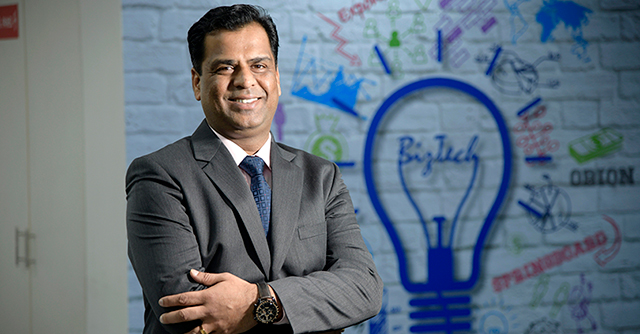
Changing customer preferences are forcing enterprises to become agile: Nitin Agarwal, Edelweiss


Technology is changing how products and services delivered. With India being the highest consumer of data in the world, the adoption of mobile and internet technologies in India is faster than the rest of the world. For companies catering to Indian consumers, especially in the financial services sector, it is important that they be ahead of the curve in the identification and adoption of technologies that consumers will be keen to adopt.
Mumbai headquartered diversified financial services player Edelweiss has been working at staying ahead through technology, to meet and deliver evolving customer needs across demographics and markets.
In an interview with TechCircle, Nitin Agarwal, president and group CIO, CTO and Chief Digital Officer at Edelweiss Financial Services, spoke about the group’s digital strategy and its major technology initiatives.

Edited excerpts:
How is Edelweiss’ digital strategy driving transformation?
As part of our digital transformation journey, we have adopted the platform thinking approach which enables us to leverage a flexible, structured, and scalable foundation, while speeding development time, leveraging investments, and incorporating long tail processes. The digital strategy is based on the three pillars of platform thinking, data Strategy and API platform.

The approach has made our enterprise development process more predictable and repeatable, enabling faster time-to-market with lower risks. It has helped us to effectively break organizational silos and create seamless process, data and information flows across our customers, partners, front office, back office and middle office.
What architectural changes have you made to support the transformation?
We are adopting cloud native platforms, designing an API infrastructure and developing a data infrastructure. Edelweiss have signed enterprise agreements with major cloud vendors in the area of cloud computing. There are a few cloud migrations which are on. There are many applications which are being developed as cloud native – not even cloud ready or cloud first. This has helped to accelerate our time-to-market.

APIs have become an essential component for any business to share information securely with the ecosystem. We are developing an enterprise API gateway to provision for seamless and secure information exchange between organizations
We are building a strong data infrastructure and analytics platform at the group level. This initiative will empower businesses to derive better insights and deliver customer solutions quickly.
How are these changes transforming the overall culture within the group?

We are embracing agile culture, encouraging our employees to learn, unlearn and relearn (upskilling/ reskilling) and fostering innovation (fail fast/do not fear to experiment).
What are some of the major technological initiatives underway at Edelweiss?
First there is enterprise cloud adoption, which means adopting public cloud at the group level. Then there is the enterprise API gateway, which enables sharing of data within and outside Edelweiss in a secure manner. We have adopted data warehousing at the group level, which enables us to unify customer data for getting better insights, thereby delivering customer solutions quicker. We have also implemented workplace modernization to improve employee productivity by deploying a unified collaboration suite. And finally, we have undertaken a network and security redesign for seamless and secure access to the internet and enterprise applications from any device, anywhere and anytime. We are moving from perimeter security to zero trust security framework.

What are the key cybersecurity challenges affecting this industry?
The whole landscape is changing, applications are moving to the cloud and employees want to work from any device, anywhere, anytime. However, the perimeter security is not enough. Need to move away from traditional castle and moat security model to zero trust security model.
The zero trust model requires strict identity verification for every person and device trying to access resources on a private network, regardless of whether they are sitting within or outside of the network perimeter

What impact do you expect technology to have on the financial services landscape over the next few years?
Changing customer preferences are forcing enterprises to become agile and adopt a platform thinking approach. Business units are now viewing technology as a business enabler than merely a support function. Financial services enterprises have started moving to the public cloud as the major cloud vendors now have development centers in India.
Financial services companies are collaborating with fintechs, forming joint venture (e.g. co-lending) for quickly building new capabilities and expanding the geographical reach.
APIs will play a key enabling role over here and modern day enterprises own the external interface (interacting with customer, partner and regulator), delivering value through specific industry or functional applications leveraging digital technologies. However, the enterprise IT core is shrinking now, catering to only basic functions like accounting, ledger, etc.
